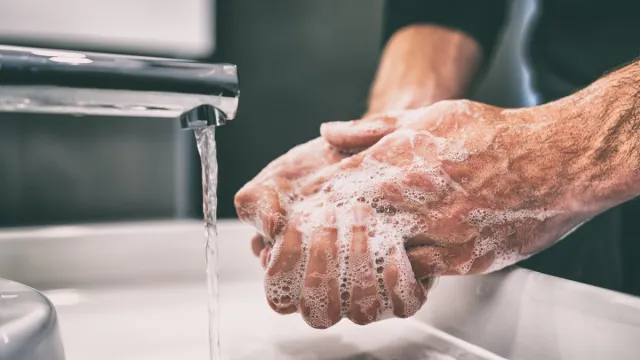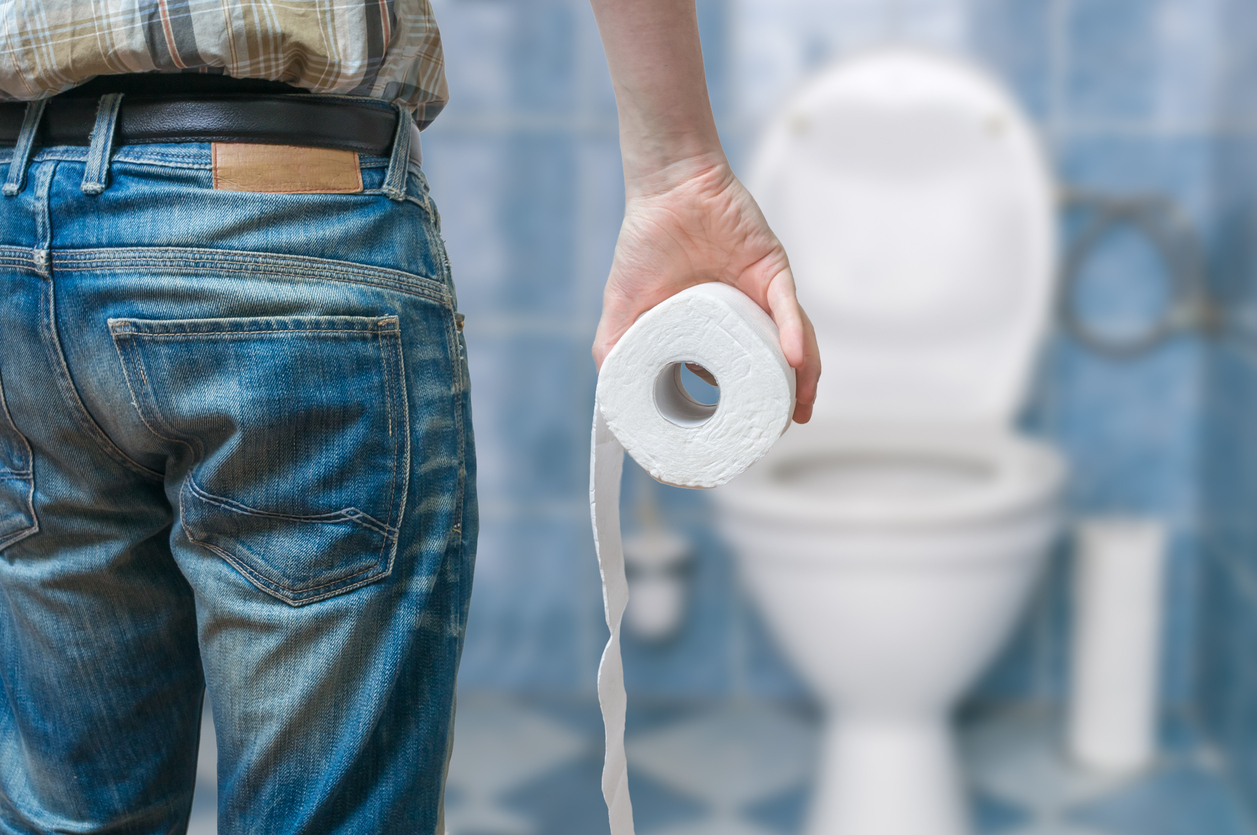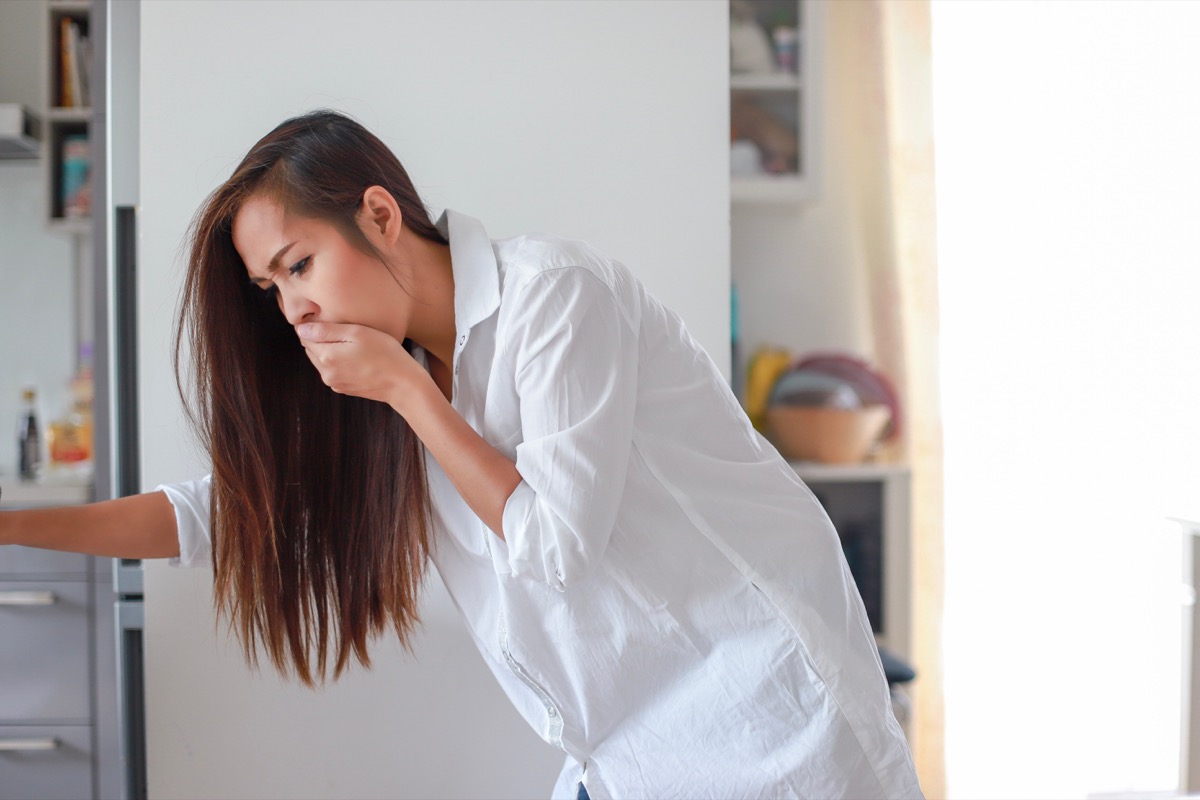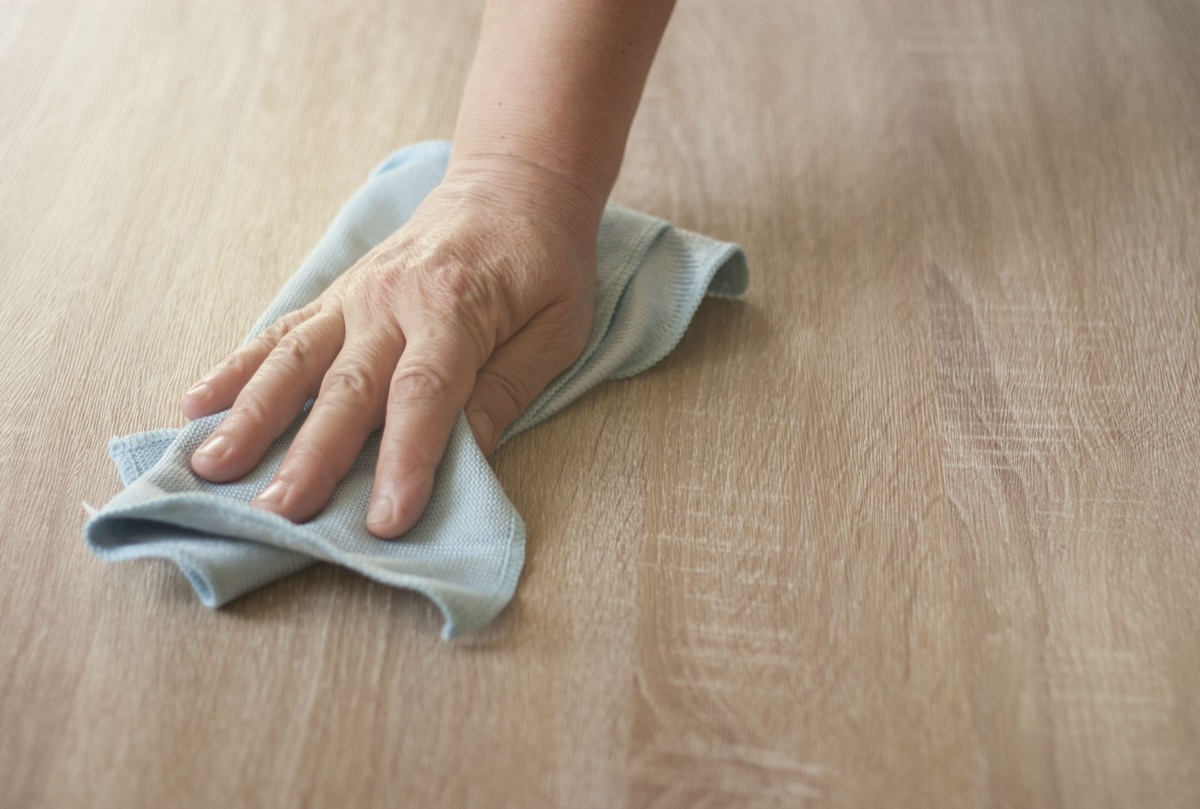What Happens If You Don't Wash Your Hands After Using the Bathroom, According to Doctors
We know we're supposed to do it, but how bad is it to skip it once in a while?

Anyone with a basic understanding of germs knows it's important to wash your hands after using the bathroom. Beyond the intuitive "ick" factor of failing to wash, a range of serious health conditions are linked to poor hand hygiene.
Still, many people don't know why washing after using the bathroom is of such paramount importance, and what exactly makes unwashed hands such a distinct threat to our health. We reached out to several doctors for an answer, and found out that there are four key dangers of leaving the lavatory without first scrubbing with soap. Read on to find out what they are.
READ THIS NEXT: Doctor Who Hasn't Showered in Years Thinks Others Should Join Him.
You can spread viruses and bacteria to yourself and others.

Failing to wash your hands after using the bathroom can result in a range of viral and bacterial conditions, such as skin, eye, stomach, and respiratory infections, among other things. That's because most people unknowingly touch their eyes, noses, and mouths throughout the day, creating a direct pipeline for your bathroom's germs to your body.
While it should come as no surprise that your bathroom harbors germs, you may be shocked to learn just how densely populated these contaminated areas can be. "A single gram of human feces—which is about the weight of a paper clip—can contain one trillion germs," explains the Centers for Disease Control and Prevention (CDC). "Make a habit of washing your hands after you use the toilet every time to reduce your chance of getting sick and spreading germs," their experts advise.
READ THIS NEXT: This Common Bathroom Habit Is a "Disaster" for Your Teeth, Dentist Warns.
You can propagate parasites.

Forgetting to wash your hands after using the bathroom can also facilitate the life cycle of parasites, warns Kash Yap, MD, a general practitioner and consultant for Facialteam.
Yap says that although many parasites require multiple hosts to complete their life cycles, some parasites, such as pinworms, require only one. "Ingestion of the eggs causes the parasite to hatch in the intestines," she tells Best Life. "The mature parasite lays its eggs in the perianal area," which can then become "dislodged with the stool." When you fail to wash your hands, Yap explains that you can then spread the microscopic eggs via your hands or fingernails onto other surfaces, leaving those in your household vulnerable.
You can enable food-borne illnesses.

Neglecting to soap up after using the bathroom can easily become a direct threat to your health if you then prepare food with your unwashed hands, says Jennifer Silver, DDS, of Macleod Trail Dental. "Transferring hazardous germs and other toxins to food without washing your hands can result in food poisoning," she tells Best Life.
The CDC says the best way to temper this possibility is to wash thoroughly and often. The health authority says it's best to wash your hands not only after you finish up in the bathroom, but also "before, during, and after preparing food," as well as before eating.
For more health news sent directly to your inbox, sign up for our daily newsletter.
You can distribute bathroom germs to other areas in your home.

Experts say that even if you don't use the toilet while in the bathroom, you should still wash your hands if you enter the room—especially if you touch anything while inside. "The bathroom is one place in the house where the diversity of bacteria, molds, fungi, and other microorganisms, is very high," says Kasparas Aleknavicius, MD, a medical advisor at DoFasting and the head of medical affairs at Kilo Health. "Even just going inside the bathroom or flushing the toilet while the toilet seat is open exposes you to a lot of microorganisms."
Aleknavicius tells Best Life that this is primarily because the bathroom tends to be humid, making it a good place for microorganisms to thrive. "If you don't wash your hands after using the bathroom, you are just distributing the microorganisms (germs) from the bathroom to other parts of the house. It is highly possible that these distributed bacteria, fungi, etc., will thrive in other places and will then cause health problems to you and your family. This is especially dangerous if there are kids in the house as they are more vulnerable to infections and diseases," he warns.





















